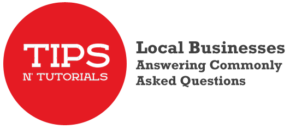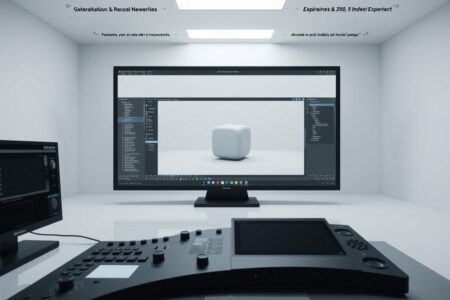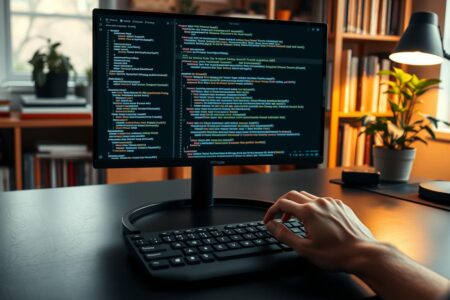What if you could blend technical precision with creative flair? Imagine automating repetitive tasks in your creative projects—like organizing video content or analyzing viewer trends—while focusing on what truly matters: your craft. Python isn’t just for engineers. It’s a tool that empowers creators to work smarter, not harder.
Think of coding like perfecting a detailed look: every step builds on the last. A misplaced line of code? Similar to blending the wrong shade. But with clear guidance, you’ll troubleshoot efficiently. The tutorials you rely on for flawless results? They mirror the structured learning you’ll find here.
Python’s simplicity makes it ideal for streamlining workflows. Automate data entry for your projects. Generate reports on audience engagement. Or even schedule content posts effortlessly. These skills don’t just save time—they unlock new ways to innovate.
Ready to merge logic with creativity? The following sections break down Python’s core concepts, showing you how to apply them to real-world scenarios. No jargon. No fluff. Just actionable steps to elevate your work.
Exploring Python Fundamentals for Beginners
Learning Python works like mastering any precision craft. You start with clean tools, follow clear steps, and build confidence through small wins. Think of it as prepping your workspace before creating something extraordinary—every detail matters.
Getting Started with Python
Install Python like you’d organize a creative toolkit. Download the latest version from python.org. Check the “Add to PATH” option during setup—this ensures your system recognizes commands. Open the terminal and type python --version to confirm installation.
Your first script? Simple. Create a file named hello.py and type print("Hello, World!"). Run it using python hello.py. This immediate result mirrors the satisfaction of perfecting a base layer before adding details.
Setting Up Your Development Environment
Choose tools that fit your workflow:
- VS Code (free, customizable)
- PyCharm (professional features)
- Jupyter Notebook (interactive coding)
Install a code formatter like Black. It auto-adjusts your script’s structure—similar to how primers create smooth skin for flawless application. Pair this with virtual environments using python -m venv myenv to keep projects organized.
Early coding wins build momentum. Troubleshoot errors by reading messages carefully. Each fix strengthens your skills, much like refining techniques through practice. Embedded video guides in our resources offer visual reinforcement for complex concepts.
Crafting a Flawless makeup tutorial

Creating a standout beauty guide mirrors building a reliable script—both demand clarity and precision. Think of your video outline as a function in code: each step must execute flawlessly to achieve the desired result. Popular creators like Lisa Eldridge structure their content with timed segments, ensuring viewers stay engaged from primer to final touch.
Planning Your Look and Video Structure
Start with a storyboard. Break your process into logical phases: prep, base, enhancement, and finishing. This mirrors organizing code into reusable modules. For example, allocate 2 minutes to skincare prep, 5 minutes to foundation blending, and 3 minutes to accent features. A clear roadmap prevents rushed transitions.
Choosing High-Quality Products for Radiant Skin
Quality matters. Just as efficient code relies on proper syntax, your look depends on compatible products. Hydrating serums create a smooth canvas like error-free variables. Test shades in natural light—this avoids mismatches that require post-production fixes. Pro tip: Layer lightweight formulas to build coverage without heaviness.
Achieving a Natural Glow: Techniques and Troubleshooting
Lighting is your debugger. Position ring lights at 45-degree angles to eliminate shadows, similar to isolating bugs in code. If bronzer appears patchy, blend with a damp sponge—a quick fix akin to refactoring lines. Remember: subtle highlights on cheekbones and brow bones elevate dimension without overwhelming the viewer.
Leveraging Python Skills in Creative Projects
Time saved is creativity earned. Python scripts act like invisible assistants, handling repetitive tasks so you can prioritize artistry. Imagine automating the tedious parts of content creation while your energy goes into perfecting details that captivate audiences.
Automating Your Production Workflow
Start with scheduling. Use Python’s schedule library to auto-post videos across platforms. No more manual uploads during peak engagement hours. One script handles Instagram, YouTube, and TikTok—freeing evenings for brainstorming new looks.
Updating product lists? Build a script that scans your spreadsheet and generates formatted descriptions. It detects when you add a new lip gloss shade or foundation, then updates your website inventory instantly. Never waste 20 minutes copying data again.
- Analyze viewer comments with sentiment analysis to spot trending requests
- Auto-generate thumbnail variations using Pillow library
- Batch-rename video files based on upload dates
Python even helps you choose products. A script can cross-reference your existing inventory with seasonal skin tone trends. It flags gaps in your collection—like missing warm-toned highlighters for summer—so you shop strategically.
Automation isn’t cold efficiency. It’s designing systems that let your creativity thrive. Less time on spreadsheets means more time experimenting with bold color combinations or perfecting that dewy skin finish.
Final Touches: Merging Tech and Beauty for Future Success
Your toolkit just got smarter. Combining Python’s logic with beauty expertise lets you innovate faster. Imagine scripts that track your favorite lip gloss shades across suppliers or analyze lighting setups for flawless skin close-ups. That’s the power of blending disciplines.
Start small. Use Python to auto-generate captions for your latest look, saving hours weekly. Analyze viewer feedback on your face contouring techniques with sentiment analysis tools. These micro-wins compound—like layering sheer products for maximum impact.
The future favors hybrids. Brands now hire creators who automate content calendars while designing viral makeup trends. Picture AI tools suggesting eyeshadow palettes based on your audience’s skin tones or chatbots booking clients during filming breaks.
Keep evolving. Dedicate 20 minutes daily to coding drills and technique refinement. Test how automation sharpens your creative edge—maybe batch-editing thumbnails frees time to perfect that dewy glow tutorial.
Ready to redefine beauty tech? Code your next breakthrough. Then, share it with the world.



